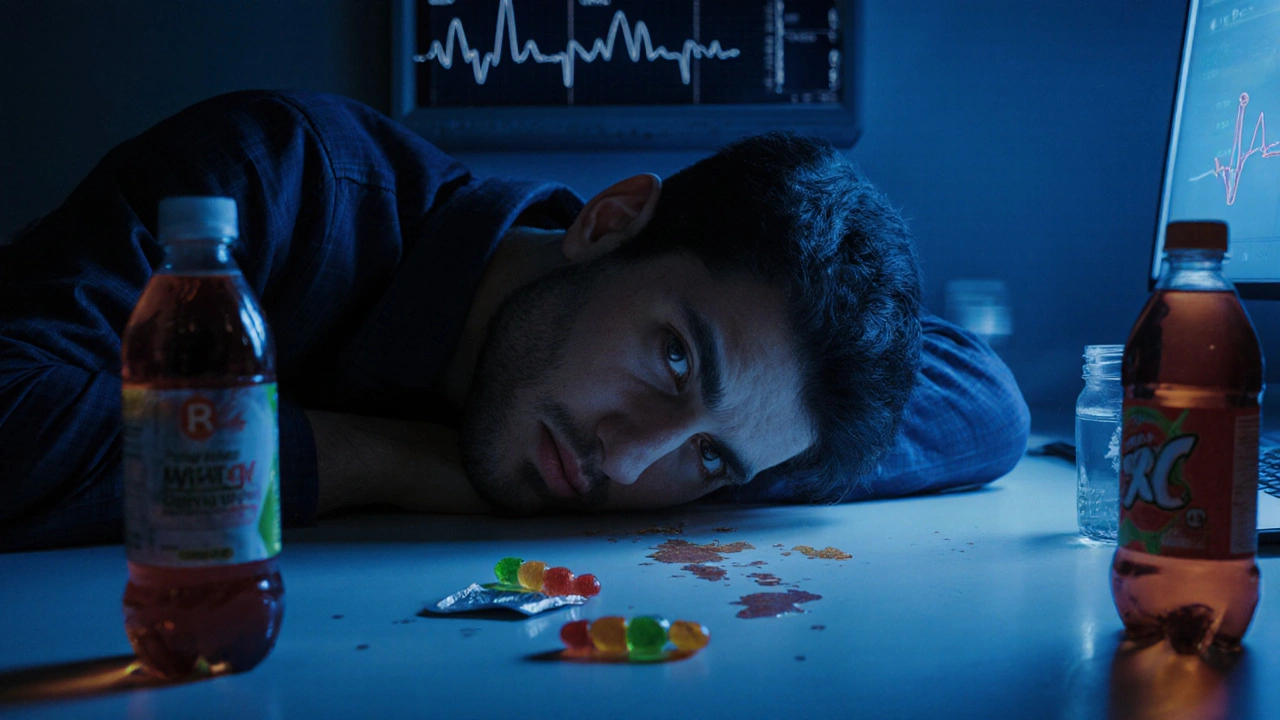1000 mg Caffeine: What It Does to Your Body and Which Drinks Have It
When you see 1000 mg caffeine, a caffeine dose far exceeding the recommended daily limit for adults. Also known as a high-dose caffeine intake, it’s not just a strong coffee—it’s a physiological event. The FDA says 400 mg of caffeine a day is safe for most healthy adults. 1000 mg caffeine is more than double that. At this level, your heart starts beating faster, your nerves go on high alert, and your stomach might rebel. This isn’t a power-up—it’s a stress test for your body.
Some energy drinks push close to this threshold. A few cans of certain brands, stacked together, can land you right at 1000 mg. Drinks like C4 Energy Drink, a popular pre-workout energy drink with high caffeine and stimulant blends or Prime energy drink, a trend-driven beverage marketed to younger audiences with varying caffeine levels can each contain 200 mg or more per can. Stack three or four, and you’re in dangerous territory. This isn’t about energy—it’s about risk. Your liver doesn’t process caffeine like water. Your nervous system doesn’t handle it like sugar. And your kidneys? They’re filtering out the mess while your heart races.
People chase this kind of dose for focus, endurance, or just to feel alive. But what they’re really doing is gambling with their heart rate, sleep, and anxiety levels. Studies show that doses over 600 mg can trigger palpitations, jitteriness, and even panic attacks in sensitive people. If you’ve ever felt your chest pound after an energy drink, you’ve felt the edge of this line. And if you’re regularly hitting 1000 mg, you’re not optimizing—you’re overloading.
What you’ll find below are real reviews and health breakdowns of drinks that come close to this level. Some are marketed as performance boosters. Others are just packed with caffeine because they can be. We’ll show you which ones cross the line, what the science says about long-term effects, and how to spot the ones that could be doing more harm than good. No fluff. No marketing spin. Just what happens when caffeine goes too far.
What happens if you consume 1,000 mg of caffeine? It's not energy-it's a dangerous overload that can spike your heart rate, wreck your sleep, and trigger panic attacks. Here’s what your body actually goes through.

